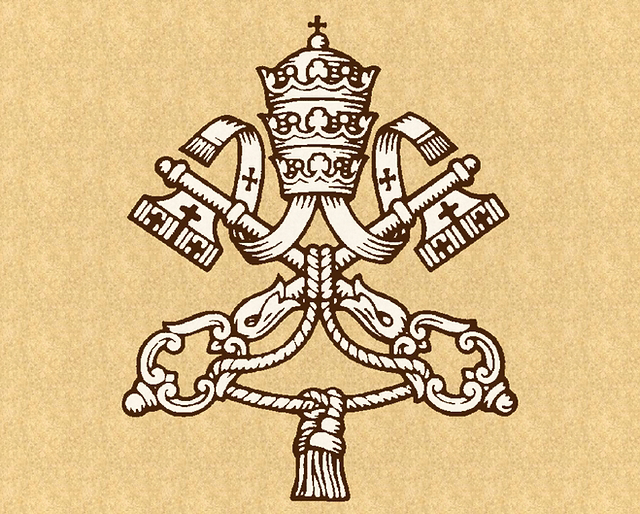How do you know if you are a good person?
The below post is an answer I gave to a question asked of me on the site "Quora." I have republished it here. You can find the original answer at: https://www.quora.com/profile/Parker-Zurbuch/answers
You cannot determine whether you are a good person solely on your own. There are too many variables in life to consider such a claim for oneself. “What is goodness?”; “Who/what determines goodness in someone?”; “Do you determine your own goodness, or is it determined by others perception of you?”; “Is goodness a moral claim, an ontological claim, both of these, or more than these?” There are probably infinitely more questions you could ask, and never reach an answer.
It is impossible to determine your own goodness, or the goodness of another for that matter (the same questions above apply to us seeing goodness in another). You cannot do it on your own.
The only way you could do it is with some sort of a rational system that answers these questions for you in a logical way. “What is Goodness?” it seems to me, can only be answered by a concept, not an action. There are too many variables in actions.
To me, Goodness can only be defined as “Being.” — and likewise, “Being” can only be defined as “Goodness.” From this premise, all of life begins to make sense. If Being is Goodness and Goodness is Being, then if I “am”, then I am good (if I “be” then I am also “good” because I “be”). Therefore, Goodness cannot be prescribed to a person as a Moral Claim (based on actions — because there are too many variables), but only as an Ontological Claim (“ontological” means, according to the being or essence of a thing). If this is true, then yes I can certainly know that I am good, in an “Ontological sense” (I am good in my very self, because “I exist”).
If I am good in my very existence, because I exist, then all things that exist (all things that “are”) are also good. If all things are good, then why is there evil and suffering in the world? Well, just because all things are ontologically good, doesn't mean that all things are morally good (meaning, good in their actions and choices). This is the key distinction to be made about “goodness.”
If you want to be a good person, morally, this is a further question — and a more difficult one. I would say that a morally good person is one that “acts as they are”, meaning that “since you are good in your being, you must act good in your choices.”
The question of “what constitutes good choices?” I think, can be answered by asking, “What is the most good being?”, and I will therefore try to act as the “most good being” acts. Well, if Goodness is Being, and Being is Goodness, then the most good being must be “Being Itself.”
What is “Being Itself?” Well, it is the most simple reality. It is the source of all being. If goodness exists, then Being itself must be good. If love exists, then Being itself must be loving. But what is evil exists? Can Being itself be evil? Well, you would need to define evil. If you consider evil as “something done by the action of someone”, then evil is subjective. Evil therefore cannot be a part of Being Itself, because Being Itself cannot deliberate between two choices. Being itself just is. Being itself cannot do good or do evil, it is Good. But is Being Itself Evil? Well, by the earlier definition, No. This is because Evil, if defined as “something done by the action of someone”, is precisely an action. And Being itself cannot Act — it can just BE. Being itself, therefore cannot be moral — because it is unable to act. But, even though it cannot be moral, it can be ontologically good. So, if Being itself is Goodness (and therefore “Love”, as a type of Goodness), and is unable to act; it must also be “Action” itself. It must be pure Action, Goodness, and Love. Since it is Being Itself, it must also have all the attributes of all that “is” (of all that “exists”) — except, as stated earlier, evil itself — because evil is an action, not something that exists ontologically. Humans are conscious, personal, relational, etc. Therefore, Being Itself must have all these properties (if the beings that emanate from Being Itself also have these properties). Being Itself must be conscious, personal, relational, and rational. Therefore, man (to be “moral” in their actions — meaning, making their actions proportional to their ontological goodness) must be conscious, personal, relational, and rational.
Being itself, also being Goodness itself, would need to be specifically relational within itself. Relationships consist of a Lover, a Beloved, and the Love that is between them. This means that Being itself must also consist of a Lover, a Beloved, and the Love that is between them. All of human morality must imitate this attribute of Being Itself. If it does not, man does not live in harmony with his ontological goodness, and cannot be moral. Loving relationship is what morality consists of. That is, always making the other more in harmony with their ontological goodness. More in harmony with what and who they are. Thus, also, more in harmony with Being Itself.
This is my understanding of reality. Take it or leave it. That is up to you.
Also, feel free to fire holes in my logic :)


Comments
Post a Comment